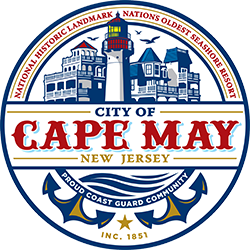City Advisory Committees
In addition to the statutory commissions, boards, teams and related entities, the creation of advisory committees was proposed by Mayor Clarence Lear as a way to increase opportunities for citizens to participate more directly in:
-
- Understanding Cape May’s challenges and opportunities;
- Studying how the city’s policies and services are working or not working;
- Suggesting ways to make our community better.
It was comparative easy to identify those areas that could benefit from citizen insight and input and that is where citizen advisory committees were created:
-
- Beach safety
- Bicycles and pedestrians
- Lafayette Street park (Suspended)
- Library
- Parking
- Seawall and promenade (Suspended)
These 10 citizen advisory committees are comprised of more than 80 full-time and seasonal taxpaying residents who are willing to participate as committee members in meetings, consultations, and site visits.
Committee members spend time and energy:
-
- Understanding issues;
- Analyzing and discussing problems and possible solutions;
- Debating alternative ways to improve conditions and services;
- Suggesting ways to make conditions and services better for our residents and visitors;
- Reporting findings and making recommendations to City Council.
A member of the City Council is assigned as liaison to each advisory committee to facilitate communication and the flow of information. Periodically the committees present their status, findings and recommendations to City Council, the City Manager and Town Hall meetings.
Committee meetings are open to the public.

